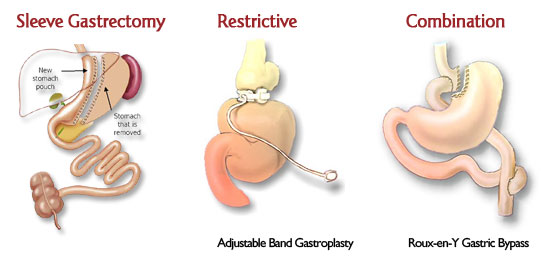We all want a quick fix & solution to our weight issues
I know I do. I hate to be the bearer of bad news. There isn’t one. Not even bariatric surgery is a quick fix.
“Weight loss surgery does not cure obesity. It is a tool that helps you lose weight when combined with a healthy diet and regular exercise. Your ultimate success depends on your life style choices!” Legacy Weight & Diabetes Institute: Weight Management Patient Education Notebook; page 4.1
Yes, you read that right; You have to do the work to reap the benefits of wellness. There is no easy cure from being obese. Eating properly and moving your body is the thing you need to do, even when you get bariatric surgery.
At one time in my life I thought about getting bariatric surgery in the form of a lap band. I didn’t follow through on it. I did go to the information seminar with my sister Carri and my sister-in-law Kris. I had the information, I thought about it. I decided against it. I don’t know why exactly. Hard to remember. Maybe it was the fact that the speaker said to me that you have to work at it that scared me. Maybe the reason I wanted to be skinny, was so that I could be beautiful to the person I loved and who didn’t want me. I don’t know. All I know is a year later, the guy turned out not to be the knight in shining armor that I wanted him to be, and I started my journey with Vasculitis and tracheal stenosis. That took precedence over being a hot bombshell and getting the guy to want me. Now that I am in remission, I can now focus on getting the weight off.
I love the handbook that I found at Legacy Health. I got some great ideas for myself. Especially when it comes to how to think about your wellness journey. Here are a few of my favorites:
- Move towards wellness and health
- Know that surgery is not a quick fix
- Develop new life long habits of wellness
- Remain flexible and open
- Be kind to yourself
- Mistakes will happen
- Practice being aware of what and why you are eating
- Eat when hungry, stop eating with the first feeling of being full
- Do activities you enjoy and feel good
- Small steps will lead to success
I already knew this information, but it doesn’t hurt to be reminded. It takes your body 20 minutes after you start eating to register that you are full. That is why it is important to slow down, put your fork down, savor the food, savor the moment, and pay attention while you are eating. Eating fast only means you eat more than you will need.
Just because you get bariatric surgery doesn’t mean you don’t have to be mindful of your choices. You have to. That is why one of the key components is the support group system and they want you to have a great support team at home too. This process is life altering, scary, and not easy. It’s going to drive you batty whether you go through the surgery or you don’t. You still have to focus on the food and movement part. Regardless of what you are going to do, you have to have wellness goals and plans and I don’t want you to forget your wellness goals.
What I didn’t know, before I decided to write this article, is that there are three different types of bariatric surgery. There are some big risks involved along with the benefits. Here are the different types:
 Type 1: Roux-Em-Y Gastric Bypass:
Type 1: Roux-Em-Y Gastric Bypass:
There are three steps to this bypass.
- Step one: They create a golf size gastric pouch. (The stomach is the size of a football)
- Step two: They divide the Jejunum, the second part of the small bowel and connect it to the bottom part of the new golf size pouch.
- Step three: The reconnect the bowel to the part of the small bowel that was connected to the new gastric pouch. This allows the digestive juices that are needed to digest food to enter the pouch. This is a two hour surgery.
Type 2: Sleeve Gastrectomy:
The surgery requires them to remove most of the stomach leaving only the tube that goes from the esophagus to the small intestine.
Type 3: Adjustable Gastric Banding (lap band):
A band is placed around the top of the stomach creating a golf size pouch. The band has a balloon like ring that can be inflated and deflated with saline solution.
The benefits and the risks of having bariatric surgery are equal.
Yes, losing weight helps with blood pressure, diabetes, heart issues, and other obesity complications, but the risks matter too. Getting bariatric surgery is not an easy decision to make and that is why there is a long process in order to get it done. Some are not ready to be committed to the process.
The risks to having bariatric surgery are:
- Death (1 in a thousand die)
- Not as much weight loss as you wanted or need.
- Bleeding problems
- Blood clots
- Infections
- Possible need for a blood transfusion
- Bowel blockages
- Leaky bowels
- Lack of protein
- Lack of vitamins
- Lack of minerals
- Blocked stomach outlet
- Slipping or eroding band
- Nausea
- Hair loss
- Food intolerance
- Loss of muscle
50 percent of people who have bariatric surgery regain their weight 2 years after the surgery. Some gain a few pounds or some gain much more. It depends on if you follow through with your wellness plan.
After surgery there are 6 phases of eating you have to through. It is not an easy process. It takes time, commitment, and support from your team in order to be successful. That is why they have support groups that it is recommended you attend and, of course, go to the doctor.
If you decide to get bariatric surgery. Here are some key things I would recommend:
- Follow what the nutritionist tells you to do. Focus your mind on the fact that this is not going to be easy and it isn’t quick. The choice to have bariatric surgery will alter your eating program for the rest of you life and will have to include supplementation and planning. I think the diet industry has programmed us with their ads, to think we can lose so much weight in 4 weeks. Those are misconceptions. Being well is a lifetime commitment and the nutritionist will help you find the eating plan that will work for you.
- Go to support group meetings. I know for me, eating is an emotional thing. I get bored, lonely, pissed off, or sad and I head to the cupboards or fridge for something to eat. These support groups will help you work through and find solutions. That is why they are available.
- Journal. In the handbook they have something in it called “Blue print for my new life.” You list things that you want your life to include and then you rate the importance. I love this tool. I will be spending some time in my journal filling this out.
Although, I have made the choice to not get bariatric surgery. I do see how it does help people achieve their goals. It’s not a cop-out as some believe. You still have to do the work to achieve your wellness goals. You can’t be lazy about it. You have to put the time, energy, and commitment into your wellness. That is true whether you have bariatric surgery or if you decide to do it without it.
Let’s encourage each other to accomplish our wellness goals. Support is so important.
Do you needs more support? Would you like someone to work with you on your terms? Wellness Works NW would like to set up a free initial consultation with Karen G Clemenson. Wellness Works NW serves Kelso, Washington and the surrounding areas. Contact Us for more information.
Here are the links for where I got the information for my article.
- Legacy Health Patient Handbook for Bariatric Surgery
- American Society of Metabolic & Bariatric Surgery
- Legacy Health Weight Loss Management
- Bariatric Girl Blog
- Men’s Weight Loss Surgery Forum
- Legacy Health Gastric Balloon Information

Jamie Holloway lives in the Portland, Oregon area. Since October 2011 she has been sharing her Journey Toward Health and Wellness with Vasculitis through her blog at JamieChasesButterflies.com. As most of her articles will be about Men’s Health, Jamie intends to write her articles as though she was sharing important information with her brother, nephews and friends. We hope you are as inspired as we are with the raw candor Jamie uses in her writing. If you would like to help support Jamie’s writing efforts please Donate now.













